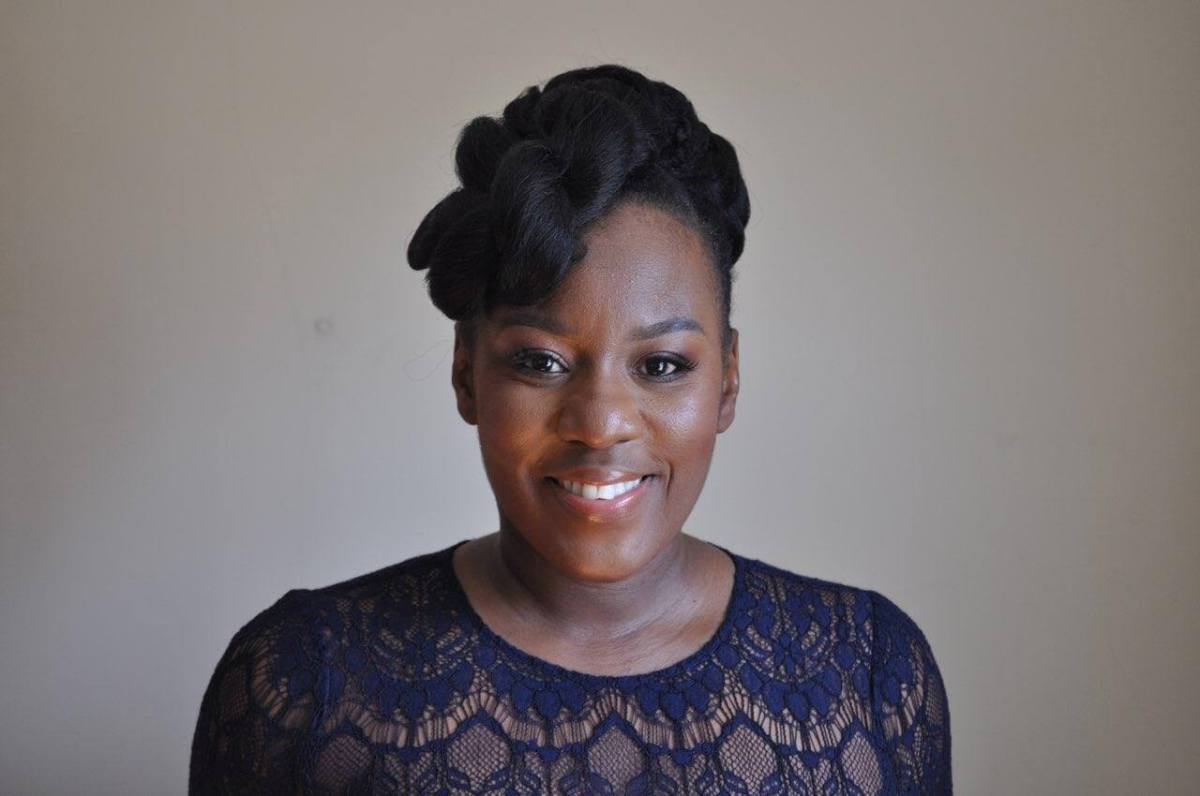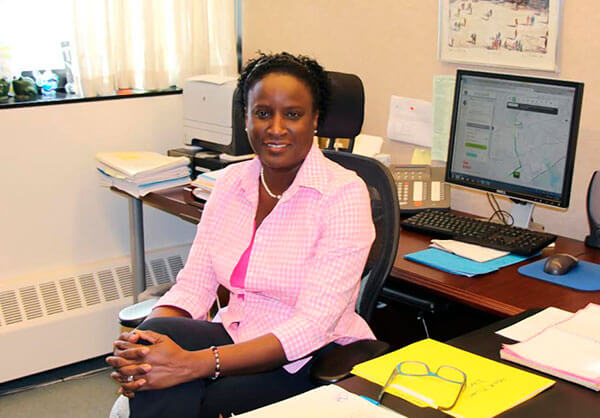Brooklyn’s Kingsborough Community College (KCC), City University of New York (CUNY), has appointed Vincentian Dr. Kinta Alexander to the KCC Foundation Board.
A KCC alumnus, the college said Union Island, St. Vincent and the Grenadines-born and raised, Dr. Alexander is the director of Infection Prevention and Control at New York City Health and Hospitals/Harlem, having previously worked in infection control at Mount Sinai Health System in New York City.
In addition, she is an adjunct lecturer in biology at KCC.
“We’re excited about the breadth of knowledge and experience Dr. Alexander brings to the college,” said KCC Foundation Board Chair Suzanne M. Murphy in a statement.
“As an alumnus, she is uniquely positioned to advocate on behalf of students,” Murphy added.
Dr. Alexander told Caribbean Life, in an exclusive interview Tuesday night, that it was “an honor” to be selected to the KCC Foundation Board and that she was “excited to pay it forward.”
“There is a spirit of resilience and a discipline for excellence I took with me from KCC throughout my life and career,” she said. “With many new issues facing higher education institutions, it is of paramount importance that my presence, knowledge and experience contribute to the direction of KCC.
“The infrastructure of today’s colleges and universities was never more important than it is today for students,” she added. “As a proud alumna of the Union Island Secondary School (UISS) — where our motto is ‘not only for school but also for life’ — [it] is a testament of the vision, mission and goals necessary for the success of its students, community and a nation. And, for that, I am forever grateful.”
In addition to the duties of basic planning and oversight, Dr. Alexander she looks forward to “building relationships and strategically address such issues as tuition affordability, job placement for graduates, quality of education, and competition with other institutions and online learning programs.
“There is a season for everything,” she said. “I embrace this opportunity, as I continue the legacy that was set before me, with all intentions to pass on the baton to future students within the Diaspora.”
On graduating from UISS, Dr. Alexander said she left the southern Grenadine island for the United States to pursue her post-secondary educational endeavors.
She said her first stop in this pursuit was at KCC, where she earned an Associate of Science degree in biological sciences, followed with a Bachelor of Arts in biology/chemistry at Hunter College, CUNY.
Alexander said she then received a Master of Public Health in community education from East Stroudsburg University, PA and a Master in Medical Microbiology from Long Island University, while attending New York Medical College.
At NY Medical College, Alexander earned a Doctorate of Public Health in health policy and management.
Dr. Alexander was featured in the New York Times for the developing and implementing a protocol to prevent and control the transmission of Candida auris (C. auris) at Mount Sinai Brooklyn.
According to the Atlanta-based US Centers for Disease Control and Prevention (CDC), C. auris is an emerging fungus that presents “a serious global health threat.”
The CDC said it is concerned about C. auris for three main reasons. Firstly, it is often multidrug-resistant, meaning that it is resistant to multiple antifungal drugs commonly used to treat Candida infections. Some strains are resistant to all three available classes of antifungals.
Secondly, the CDC said C. auris is difficult to identify with standard laboratory methods, and it can be misidentified in labs without specific technology.
“Misidentification may lead to inappropriate management,” it said.
Thirdly, the CDC said C. Auris has caused outbreaks in healthcare settings.
For this reason, the CDC said it is important to quickly identify C. Auris in a hospitalized patient, “so that healthcare facilities can take special precautions to stop its spread.”
Dr. Alexander said the C. auris protocol was adapted by the Mount Sinai Health System to be used at each of its sites.
The New York State Department of Health also used this protocol as a guide for hospitals throughout New York State, added Dr. Alexander, who is also an adjunct professor at KCC’s Department of Biological Services, and has presented and published numerous evidence-based research and protocols.
Dr. Alexander said she mentors students who are part of the Bridges, CSTEP and Crossroads faculty-mentored research program, participated in the alumni Career Panelist, and was the Dean’s list alumni guest speaker at KCC.
In addition, she said she provided speaker in engagements and facilitator for “4 Real Women International leadership Academy4 Women: LEAD, Queens College Women Empowerment Forum” in New York.
Dr. Alexander is also a member of a number of professional organizations, including Professionals in Infection Control and Epidemiology (APIC); APIC Greater New York Chapter 13; Society for Healthcare Epidemiology of America (SHEA); The American Public Health Association (APHA); and Public Health Association of New York City (PHANYC).
Last year, the Brooklyn-based Action, Performance, Commitment (APC) Community Services recognized Alexander’s stellar contribution in the area of science.
“Her vision to conduct research and implement systems of infection control is commendable and an inspiration to women to continue to be innovative in the areas of science and medicine,” said APC at the time. “Thank for transforming and inspiring the next generation of minority and female scientists”
A year earlier, the United Hospital Fund (UHF) honored Dr. Alexander during its “Tribute to Excellence in Health Care.”
She said 57 honorees, selected by each of 51 participating hospitals and long-term care organizations, received the “Excellence in Health Care Award” for quality improvement champions.
Dr. Alexander, who is also founder of MICRO Consulting, Inc., was saluted by Mount Sinai Brooklyn as its honoree for the UHF “Excellence in Health Care Award” for reducing hospital-acquired infection rates, “particularly for work to tackle the multi-drug resistant, hard to identify, and often deadly threat of Candida auris.”
As director of Infection Prevention and Control, KCC said that Dr. Alexander’s her duties “require that she research, evaluate and incorporate evidence-based protocols into routine practice.”
KCC said she also consults and collaborates with community health organizations and local, state and federal public health officials to advocate for patient safety, health worker safety and safe practices.
“Though her role puts her center stage in the COVID-19 pandemic, she meets the challenges with aplomb,” KCC said.
Dr. Alexander said: “There is a spirit of resilience and a discipline for excellence that I took with me from KCC throughout my life and career.”
KCC said its foundation is the tax exempt 501(c)(3) philanthropic organization “through which individuals, foundations and corporations can make tax exempt gifts to benefit students, faculty and the college.”
It is governed by an independent board of trustees representing New York City for-profit and non-profit entities, as well as college alumni, faculty and administration.
Founded in 1963, KCC, located on a 70-acre campus in Manhattan Beach, is Brooklyn’s only community college.



















